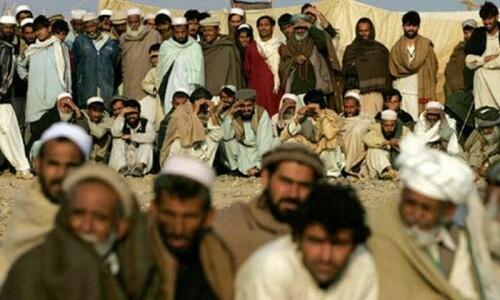LAHORE: In line with the Punjab government’s vision for a resilient and sustainable economic growth, the Punjab Planning and Development (P&D) Board, through its SDGs Support Unit and Resource Management and Policy Unit, organised a series of training workshops for provincial line departments on integrating SDGs into planning and budgeting processes.
Chairing a workshop on Monday, P&D Board Chief Economist Masoud Anwar said the significance of strengthening the government policies integration and enhancing resilient institutional capacities are crucial steps towards achieving sustainable development goals (SDGs).
He said embedding the SDGs targets within the provincial development agenda was the need of the hour. He reiterated the board’s commitment to strengthening institutional capacities and fostering evidence-based policymaking to bridge the existing gaps in the SDGs implementation.
Covering social sector departments on the first day of the training session, Mr Anwar said the hands-on workshops were specially tailored to focus on aligning the development projects and schemes of the social, production & service, and infrastructure sectors with the SDGs.
Ahead of the Annual Development Programme (ADP) formulation, he said the training sessions would be organised to raise awareness and sensitise the government officials on the national and Punjab SDGs framework. “The overarching goal is to create a constructive and enabling environment for a policy dialogue and ensure collaboration across provincial line departments, supporting the ongoing ADP formulation process to be aligned with and responsive to the SDGs,” the chief economist said.
Mr Anwar said Pakistan was among the first nations to endorse the SDGs at the Sustainable Development Summit held in New York in 2015, where the 2030 Agenda was universally adopted. However, he said, the country faced significant challenges in achieving the SDGs, ranking 137th out of 167 countries in 2024.
As per UNDP’s Integrated SDGs Report 2023, he said, Pakistan was on track to achieve 35 out of 169 targets. “Economic, political and climate change-related challenges, in addition to COVID, and the escalating security situation, have impeded advancements across multiple goals,” he said.
As per the IMF, the chief economist said, Pakistan needed around 16 per cent of its GDP for additional financing each year for five key sectors – health, education, water, sanitation and hygiene, electricity and road infrastructure.
He said Pakistan’s progress had been incremental. Since 2015, he said, Pakistan’s overall SDGs index score had improved by 19.5pc. Achieving the SDGs by 2030 required a significant SDG push, including major economic reforms and an estimated investment of $52 billion (16.1pc of the GDP).
“The Punjab government, in collaboration with the development partners, has been able to undertake many successful strides. However, over the years, some of the gains were adversely impacted by the 2022 floods and COVID-19, hitting the poorest of the poor and the most vulnerable districts the hardest,” he said. Punjab, therefore, needed a comprehensive SDG push of high-intensity economic reforms and accelerated pathways in priority policy areas.
The training sessions will continue for two more days covering the production and services sector and preparation of infrastructure development plans.
The P&D Board officers and deputy secretary of finance department attended the workshop.
Published in Dawn, March 25th, 2025













































